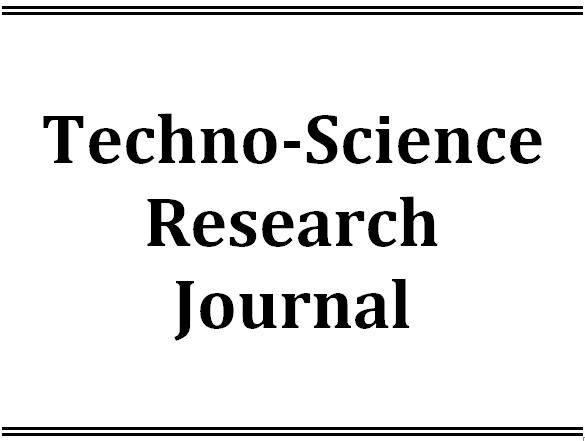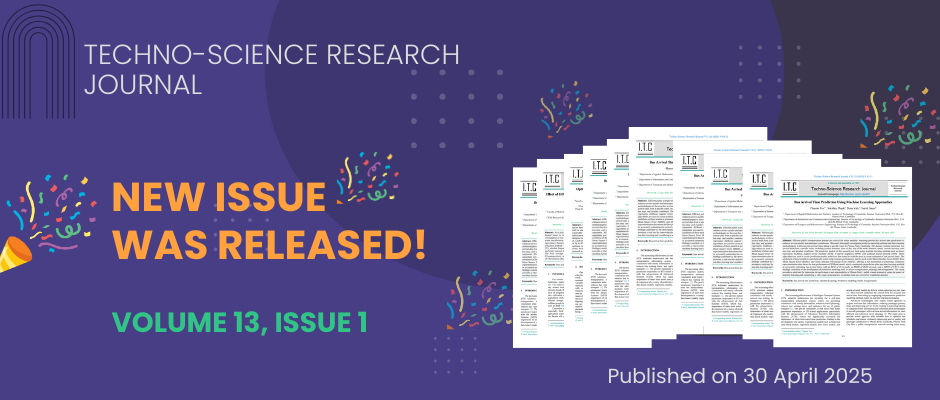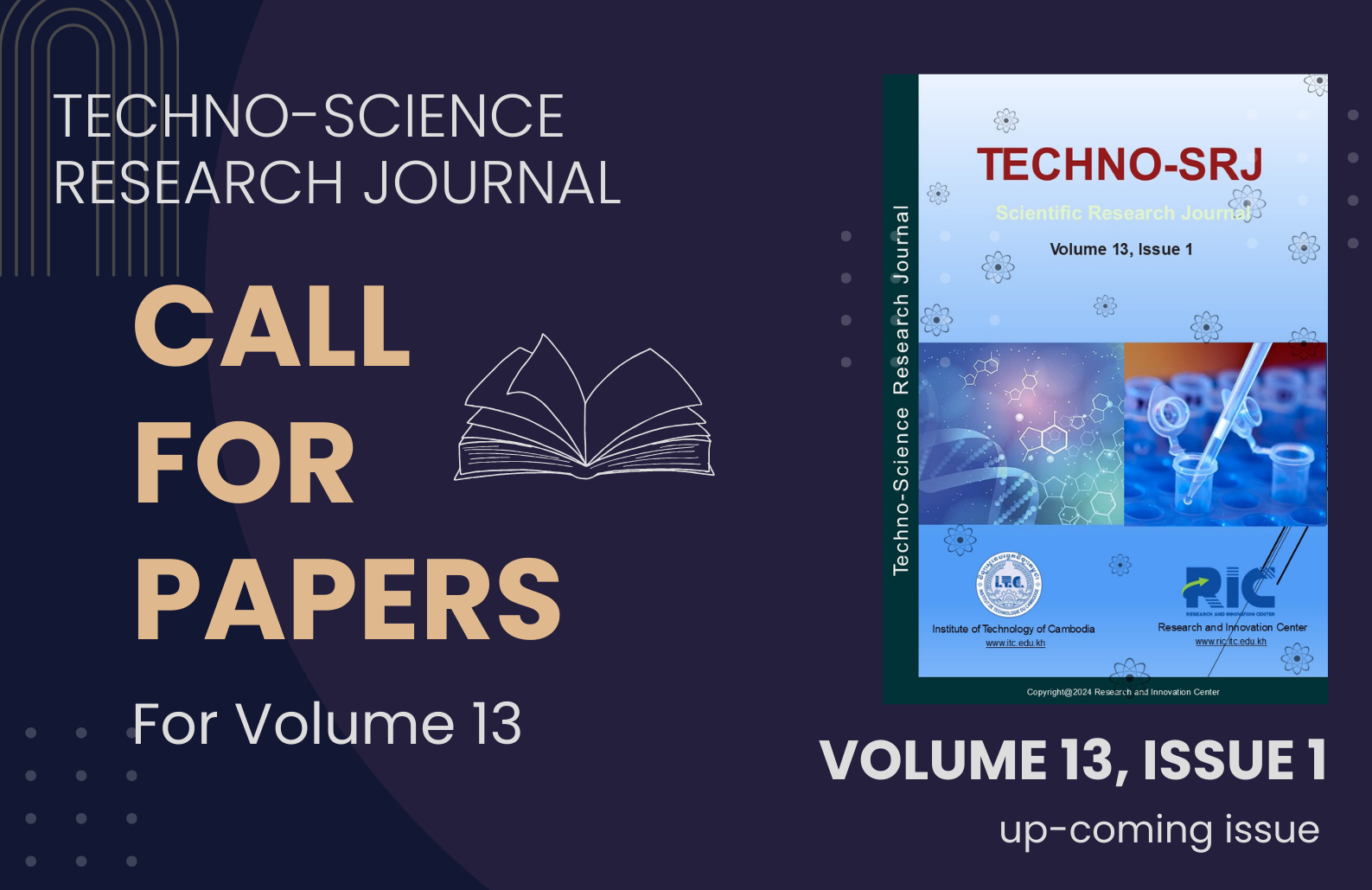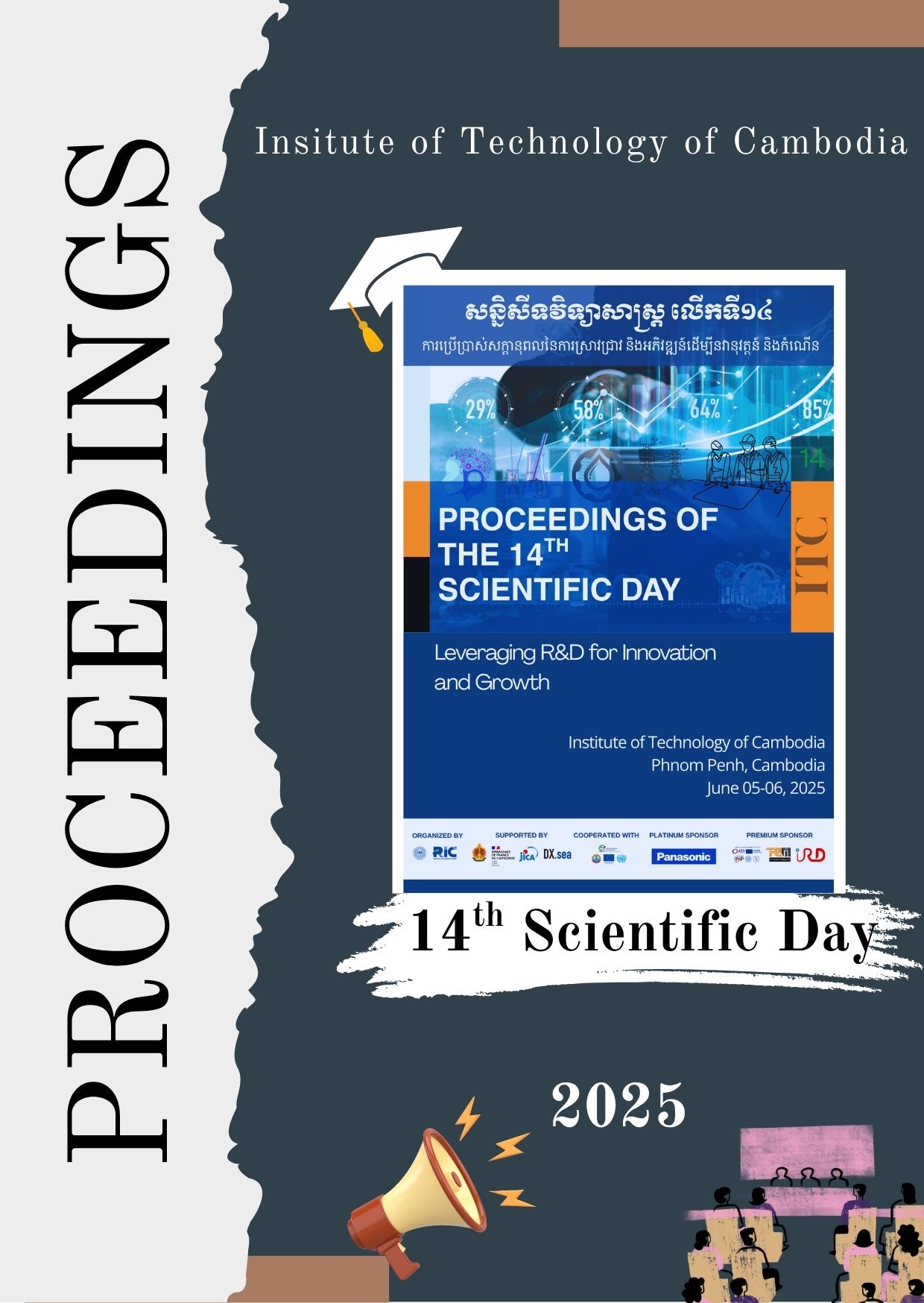Water taxi (WT) transport has been considered as an alternative solution to help reduce urban traffic congestion in Phnom Penh, Cambodia. This transportation is an alternative mode of travel that can save both time and money. Water taxi service was launched in April 2018 as an alternative public transport mode that allows users to save both time and cost. WT was suspended in March 2020 due to the spread of Covid-19 pandemic and was reopened in No
Seasoning powder is commonly made from different ingredients including salt, sugar, monosodium glutamate, spices and others. The objective of this study aimed to observe the potential changes in physicochemical and microbiological quality of formulated seasoning powder during storage at room temperature for 90 days with sealing and vacuum packed. Dried ingredients such as chili, galangal, garlic, green tamarind, mushroom, onion, river-leaf creepe
The Scientific Day event has been organized and hosted annually by Institute of Technology of Cambodia (ITC). The event has been initially organized as a local forum and it was transformed into an international forum in 2022 for academics, researchers, engineers, and industries to discuss and disseminate recent research finding, development, innovation and Science, Technology, Engineering and Mathematics (STEM) in order to achieve the sustainabl
Organized and Hosted by Faculty of Geo-resources and Geotechnical Engineering, Institute of Technology of Cambodia. Partnered with 14th RCGeoE, AUN/SEED-Net, JICA, KYUSHU UNIVERSITY, JAPAN, and THE 50TH OF ASEAN-JAPAN FRIENDSHIP AND COORPERATION,
Word spotting plays a crucial role in document analysis, particularly for ancient palm leaf manuscripts. Khmer palm leaf manuscripts, which are written on rectangularly cut and dried palm leaf sheets, hold significant cultural value in Cambodia. These manuscripts contain valuable historical, religious, and linguistic information, making their preservation essential. However, extracting information from them is challenging due to their fragility,

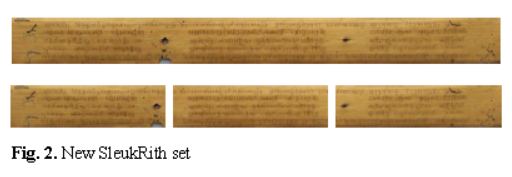
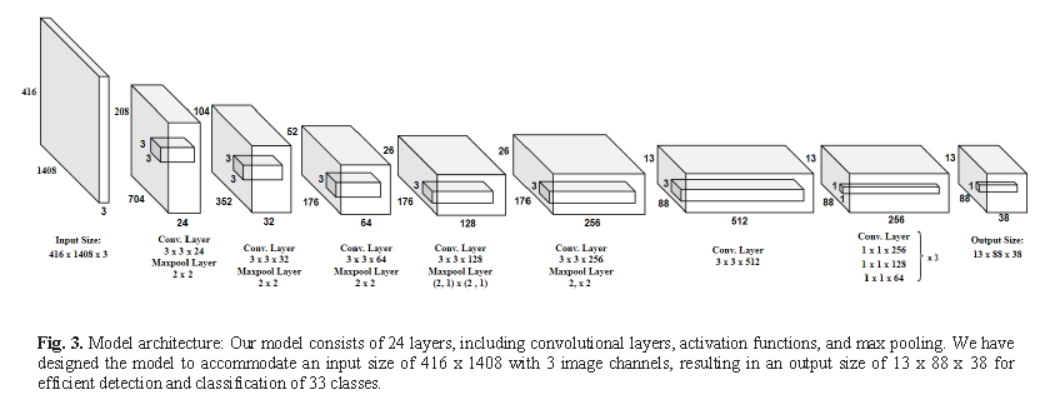

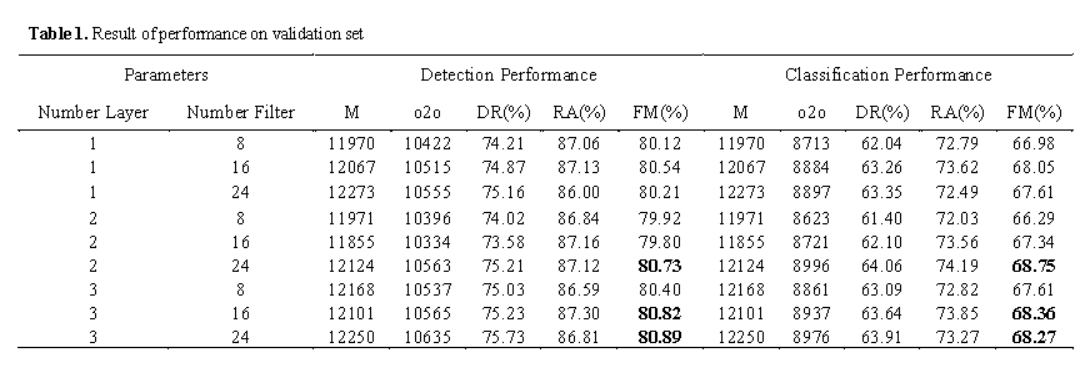

This research focuses on preserving Cambodia's historical Khmer palm leaf manuscripts by proposing a text-image reconstruction and reparation framework using advanced computer vision and deep learning techniques. To address the preservation, Convolutional Neural Networks (CNN) and Generative Adversarial Networks (GAN) are employed to fill in the missing patterns of characters in the damaged images. The study utilizes the SleukRith Set [1], which
With the growth of usage of Docker containers in the recent year, Vulnerability scanning is essential to scanning and detecting known flaws and vulnerabilities in that specific Docker image. Using a custom docker image with third-party libraries in our code base authenticity or knowing their flaws can cause a lot of trouble in the future. In this case, vulnerability scanning tools such as Clair, Trivy, Anchor Grype, and Snyk are used for detectin
Lettuce (Lactuca sativa) is a green leafy vegetable popularly consumed fresh without prior cooking, potentially posing a health risk if poorly handled. For this reason, washing is crucial for reducing contaminated microorganisms before consumption. There are many commercial washing solutions in the market. Yet, their effectiveness remains unclear. This study aimed to evaluate and compare the efficacies of different washing solutions, such as sing
A brushed DC motor is an important machine and widely used in the industry and in many of today’s mechatronics systems such as mobile robots, robot arms, and other industrial applications because of its simplicity, ease of control, and reasonable cost. The position control of a DC motor is crucial for a precision control system and it is well known that the mathematical model is very crucial for a control system design. For a DC motor, there are
Walkability is a measure that assesses the extent to which roadways are conducive to pedestrian walking. Walking, being an eco-friendly means of transportation, has many advantages including minimized adverse environmental effects, enhanced individual autonomy, and improved physical well-being. The aim of this research is to calculate an enhanced Walkability Index by considering nine variables. Additionally, it aims to assess the significance and

